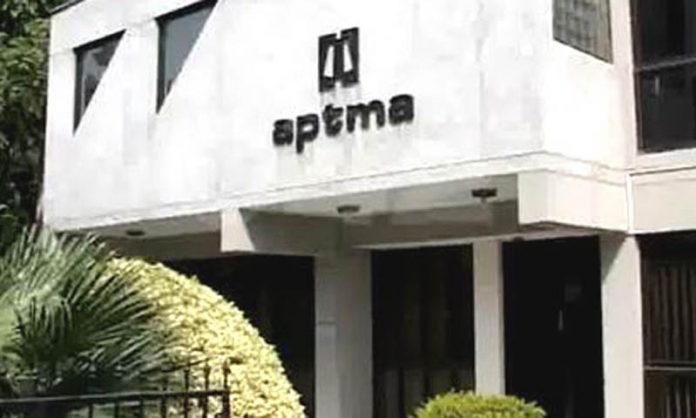KARACHI
All Pakistan Textile Mills Association (APTMA) Sr Vice Chairman Zahid Mazhar, has strongly rejected the suggestion of CAPTA Chairman Zubair Motiwala, made in a recent meeting with Minister of State for Commerce and Textiles Akram Ansari, to halt the four per cent rebate on the export of yarn, which is to be provided by the government on the basis of drawback of duties, local taxes & levies on exports.
In a statement issued to the press, he said that the spinning sector is the backbone of the textile value chain, and has faced the brunt of the high cost of doing business in the last few years, which has made it unviable. Today, the spinning industry is incurring heavy losses by selling yarn below its cost due to poor demand from the domestic consumers. The production of yarn is substantially more than the local consumption, therefore, their exports must be encouraged at all costs, otherwise, it will result in the permanent massive closure of mills and resultant unemployment.
Mazhar in support of his argument of supporting the export of yarn said that as per data of Pakistan Bureau of Statistics, total production of yarn in the year 2016-17 was 3,428,730 tons whereas cotton yarn exported in the same period was 455,345 tons i.e. only 13.28 per cent of the total production of the year.
Similarly, in the year 2015-16, total production of cotton yarn was 3,405,559 tons whereas only 12.44 per cent or 423,624 tons were exported. Thus about 87 per cent of cotton yarn produced in the country is already available for the local market whereas the domestic downstream industry consumes only about 70 per cent of the total production of yarn.
On the other hand, the surplus 30 per cent of the total production of yarn produced in the country which is excessive to the domestic consumption, if not exported would lead to a large scale closure of spinning mills and increase unemployment. The domestic consumers of yarn should not expect the spinning mills to subsidies their costs by providing them yarns below cost, rather they should explore other avenues to increase their margins.
He added that a win-win scenario can be achieved when the government makes serious efforts and succeeds in increasing the size of the annual cotton crop to 20 million bales following the example of India, which on the one hand will boost the income of the farmers and on the other hand reduce the input costs of all the sectors of the textile economy. This will also increase our textile exports and the national GDP drastically.
He further said that the country has already entered into an era of de-industrialisation where industries are closing due to the high cost of doing business. In 2005 the share of manufacturing in the GDP was 19 per cent which has now fallen to 13 per cent. Large-scale closure of textile spinning mills has already taken place resulting in a drastic increase in unemployment as well as a reduction in consumption of locally produced cotton. This will hurt both the manufacturing as well as the agriculture sectors of the economy. He added that almost 140 textile mills have already closed their operation and about one million workers have lost their jobs and another 75 to 80 mills are on the verge of closure which will add to the unemployment figure by another 0.5 million labour force employed in the textile industry. Due to the closure of about 140 mills and the various mills operating under capacity, Pakistan’s textile exports are suffering a loss of more than $ 4 billion per annum.
He further suggested that the following measures be taken on immediate basis to improve the efficiency and viability of textile industry, like bringing down drastically the price of both gas and electricity to Rs 400/MMBTU and Rs 7/KWH respectively to bring it at par with the prices in the region, to remove GIDC, expeditious payment of long outstanding sales tax refunds and other refunds to address the liquidity issue, to check large-scale influx of imported yarn and fabrics in the country to save the domestic industry. Free Trade Agreements and Preferential Trade Agreements be reviewed and revisited in such a way that the exports of Pakistani goods to those countries be increased.
He said the regional countries are following export-friendly policies to increase their exports. In the last 10 years, Bangladesh textile exports has increased from $ 9.8 billion in 2006 to $ 35.2 billion in 2016 i.e. about by 360 per cent, China $ 144 billion to $ 255 billion or 77 per cent, India $ 18.4 billion to $ 35.4 billion or 92 per cent, Vietnam $ 6.6 billion to $ 30.5 billion or 460 per cent while Pakistan’s textile exports have gone down from $ 14 billion to $ 12 billion. The share of all these countries in the global textile trade is increasing while the share of Pakistan has reduced from 2.2 per cent to 1.5 per cent.
Zahid Mazhar said that the trade deficit for the last fiscal year was recorded at an all-time high at $ 32.58 billion, imports at $ 53 billion while exports were recorded at merely $ 20.45 billion, the lowest after 2009-10.
He requested the prime minister to place the revival of the economy and the textile industry on the top of his agenda as the government has to pay $ 7,432 million including $ 1,595 million interest in 2017 and $ 38.224 billion and Rs 15.883 trillion against external and domestic public debt respectively including principal amount and interest in the next seven years and only the increase in exports can help to pay the above debts otherwise we have to take fresh loans to service the principal and interest of the loans we have already taken.
He said that the textile industry of Pakistan is capable enough to bring the economy out of the current disastrous condition. He also urged Prime Minister Shahid Khaqan Abbasi to issue instructions to the concerned authorities to implement the Textile Package of Rs 180 billion announced earlier this year for the support of exports and the textile industry.
























